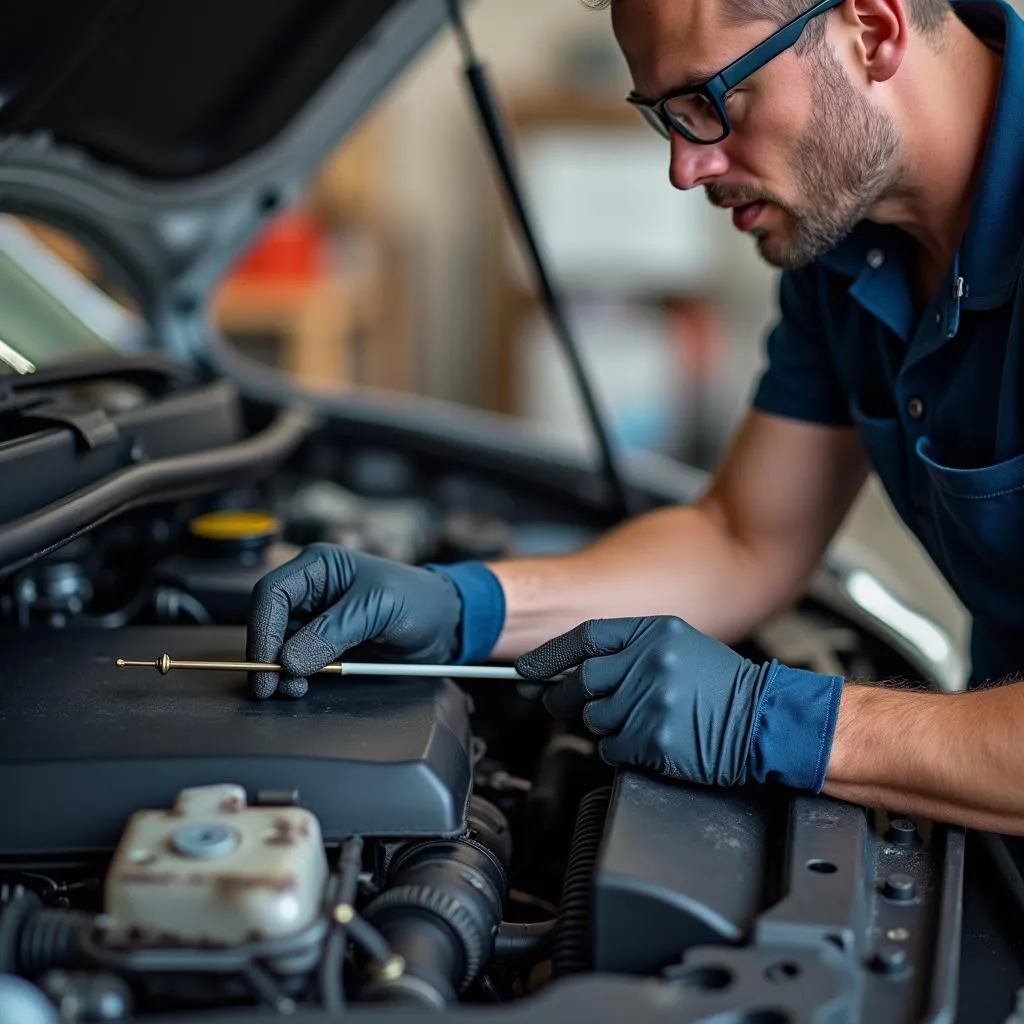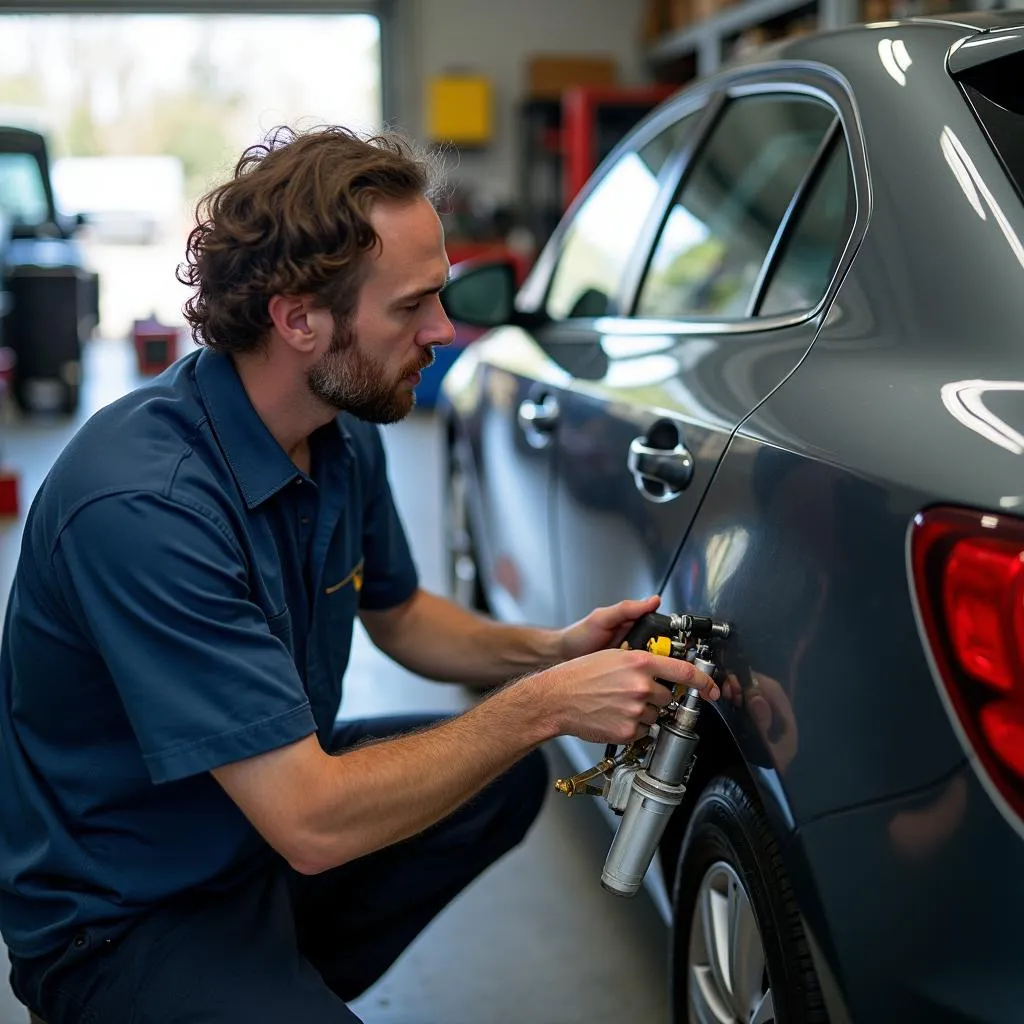From routine maintenance to complex repairs, understanding the world of auto services can feel like navigating a maze. But it doesn’t have to be that way. This guide will equip you with all the knowledge you need to navigate the auto service landscape with confidence, whether you’re a seasoned driver or a first-time car owner.
What are Auto Services?
Auto services encompass all the maintenance and repair work required to keep your vehicle running smoothly and safely. This includes everything from basic oil changes and tire rotations to more complex tasks like engine repairs and brake system maintenance.
Why are Auto Services Important?
Regular auto services are crucial for several reasons:
- Safety: Well-maintained vehicles are safer to drive. Worn-out brakes, failing headlights, and faulty tires can lead to accidents.
- Performance: Proper maintenance ensures optimal performance. Regular oil changes and tune-ups keep your engine running efficiently and maximize fuel economy.
- Longevity: Taking care of your vehicle extends its lifespan. Addressing minor issues before they become major problems can save you money in the long run.
- Peace of Mind: Knowing your vehicle is in good working order gives you peace of mind, allowing you to focus on the road ahead.
Types of Auto Services:
The vast world of auto services can be categorized into several key areas:
Routine Maintenance:
Oil Change:
This is the most common and essential service. Replacing the old oil with fresh oil ensures proper lubrication and prevents engine wear.
Tire Rotation:
Rotating your tires regularly promotes even wear and extends their lifespan.
Brake Inspection and Service:
Regular brake inspections are crucial for safety. Worn-out brake pads or rotors need replacement to ensure effective braking.
Fluid Top-Offs:
Checking and replenishing fluids like coolant, brake fluid, and power steering fluid are essential for optimal performance.
 Mechanic checking car fluids
Mechanic checking car fluids
Air Filter Replacement:
A clean air filter ensures optimal airflow to the engine, improving performance and fuel economy.
Battery Check and Replacement:
A weak or failing battery can leave you stranded. Regular battery checks and replacement ensure a reliable start every time.
Spark Plug Replacement:
Spark plugs ignite the fuel-air mixture in your engine. Worn-out spark plugs can reduce performance and fuel economy.
Major Repairs:
Engine Repair:
Engine issues can range from minor repairs to major overhauls. Addressing engine problems promptly is essential for longevity and safety.
Transmission Repair:
Transmission problems can severely affect drivability. Transmission repairs often require specialized expertise and equipment.
Suspension and Steering Repair:
A faulty suspension or steering system can make your vehicle unstable and unsafe to drive.
Electrical System Repair:
Electrical issues can range from faulty lights to malfunctioning sensors. A qualified technician can diagnose and repair electrical problems.
 Mechanic diagnosing electrical problems in a car
Mechanic diagnosing electrical problems in a car
Bodywork and Paint:
Dents, scratches, and rust damage can affect both aesthetics and safety. Bodywork and paint repairs can restore your vehicle’s appearance.
Specialized Services:
Alignment:
Wheel alignment ensures proper tire contact with the road, improving handling and tire wear.
Tune-up:
A tune-up can enhance engine performance, fuel economy, and emissions.
Diagnostic Scan:
Modern vehicles have onboard computer systems that can detect and store error codes. A diagnostic scan can pinpoint potential problems.
Tire Repair and Replacement:
Flat tires or worn-out tires require immediate attention. Tire repair and replacement ensure safe driving.
A/C Service:
Air conditioning maintenance ensures cool and comfortable rides, especially in hot weather.
 Mechanic servicing a car’s air conditioning system
Mechanic servicing a car’s air conditioning system
Choosing the Right Auto Service Provider:
With so many options available, choosing the right auto service provider is crucial. Here are some factors to consider:
- Reputation: Look for providers with a solid reputation for quality service and customer satisfaction.
- Experience: Choose a provider with experienced technicians who are knowledgeable about your specific vehicle make and model.
- Certifications and Qualifications: Ensure the provider is certified and qualified to work on your vehicle.
- Transparency: Look for providers who are transparent about pricing, service procedures, and warranties.
- Customer Service: Choose a provider with excellent customer service and a commitment to addressing your concerns.
Tips for Saving Money on Auto Services:
- Schedule Regular Maintenance: Preventative maintenance can help you avoid costly repairs down the line.
- Shop Around: Get quotes from multiple providers to compare prices and services.
- Consider DIY Options: For basic maintenance tasks like oil changes and tire rotations, you might consider doing it yourself.
- Ask About Discounts: Many providers offer discounts for senior citizens, military personnel, or students.
- Negotiate Prices: Don’t be afraid to negotiate the price of services, especially for larger repairs.
Expert Insight:
“Regular auto service is not just about extending the life of your vehicle, it’s about ensuring your safety and peace of mind on the road,” shares Mark Johnson, a renowned auto mechanic with over 20 years of experience. “By investing in proper maintenance, you’re protecting your investment and ensuring that your car continues to serve you well.”
Finding the Right Auto Service for Your Needs:
The best auto service provider for you will depend on your individual needs and budget. Whether you require routine maintenance, complex repairs, or specialized services, there’s a provider out there that can meet your needs.
FAQs:
- How often should I get an oil change? The recommended oil change interval varies depending on your vehicle’s make, model, and driving habits. Consult your owner’s manual or a trusted mechanic for guidance.
- What are the signs of a failing brake system? Some signs include squealing, grinding, or spongy brake pedals, as well as a car pulling to one side when braking.
- How can I prevent engine problems? Regular oil changes, tune-ups, and addressing minor issues promptly can help prevent engine problems.
- What is a diagnostic scan? A diagnostic scan uses a specialized tool to read error codes stored in your vehicle’s computer system, helping to identify potential problems.
- How much should I expect to pay for a basic oil change? Prices for oil changes vary depending on the type of oil, filter, and labor costs. However, you can typically expect to pay between $30 and $80.
Remember:
Investing in regular auto services is an investment in your safety, peace of mind, and the longevity of your vehicle. By understanding the different types of services available and choosing a reputable provider, you can keep your car running smoothly and enjoy the road ahead.

Leave a Reply